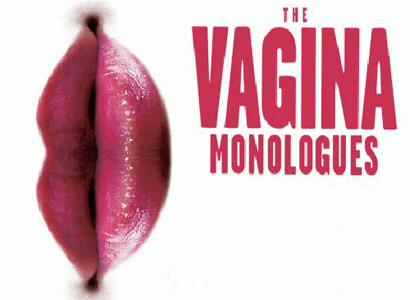“The Vagina Monologues” continues to break stigmas

March 8, 2016

On Feb. 23 Gender and Women’s Studies and Peace & Justice Education sponsored a reading of Eve Ensler’s “The Vagina Monologues” in the Driscoll Auditorium. “The Vagina Monologues” consists of several testimonies by women of various backgrounds discussing their experiences of self-discovery, sex work, rape, female genital mutilation (FGM) and other women’s issues. This performance was done as a “V-Day campaign,”which is a global activist movement to stop violence against women and girls. The play was performed by a cast of Villanova graduate and undergraduate students, and directed by GWS Graduate Assistant and Graduate Theater student, Jess Otterbine.
The original ” The Vagina Monologues” premiered in 1996 after Eve Ensler conducted interviews with two hundred women about their views on relationships, sex and gender issues. Ensler compiled the anecdotes into a single production that she preformed solo at the HERE Arts Center in New York City. Later, three actresses performed the monologues and more recently, there have been different women for each role. As “The Vagina Monologues” gained popularity in 2001, it was held in Madison Square Garden featuring Whoopi Goldberg and Melissa Etheridge, followed by an all-transgender cast in 2004.
With increasing recognition of “The Vagina Monologues,” Eve Ensler and producer Willa Shalit launched “V-Day,” a global effort to fundraise for women’s shelters, grassroots organizations, international organizations, rape crisis centers and other resource centers through the benefits of each production. The University’s production of “The Vagina Monologues” specifically benefitted Women in Transition, a Philadelphia agency providing counseling, referrals and advocacy for women who are victims of domestic violence or substance abuse. The goal of both V-Day and “The Vagina Monologues” is to make a change in the systematic oppression of women and female sexuality by raising awareness about violence and opening a dialogue.
Since its original debut, Ensler has made several revisions to “The Vagina Monologues,” omitting certain stories or editing in stories depending on which she finds relevant at the time. For example, transgender rights have been quite prominent in our society recently, so Ensler saw it fitting to include a segment titled “They Beat the Girl Out of my Boy” in the most recent version. Each monologue addresses a different issue relating to vaginas or femininity, including rape, menstruation, female genital mutilation (FGM), love, relationships, orgasm, masturbation and much more.
The Villanova production included many of these themes and was performed by seven women from the Villanova community. The first topic was the many names for a vagina, followed by a story about one woman’s experience with a husband who made her shave. The next story was that of a 72-year old virgin who had never had an orgasm, followed by a story from a woman who attended a “vagina workshop” to learn more about herself sexually. Next was the anecdote of a transgender woman forging her identity, followed by a woman’s experience with a partner who was extremely comfortable with vaginas, succeeded by a discussion of how “unhappy” vaginas are with feminine products. The performance became very serious with a story from a Bosnian refugee who was raped by soldiers, describing very graphically the horrors she endured. Then, one woman discussed her opinions on short skirts, followed by an anecdote from a homeless woman, a six year old, a sex worker and finally a woman observing childbirth. Between these testimonies statistics were also presented on the vagina itself and female genital mutilation. Each performance, whether funny, serious or informative, was incredibly eye opening and brought forth important topics for thought and discussion.
After the reading, the cast opened up the floor for a dialogue with the audience members. Some viewers were interested to know about controversy sparked by the performance. In the past, “The Vagina Monologues” has met opposition (especially from Catholic institutions) for its descriptions of masturbation, lesbianism and sexual content. The cast admitted that they had similar difficulties with acceptance of the performance on Villanova’s campus. However, the participants did not express frustration with those who did not support the readings, but rather urged them to learn more about the monologues by either researching on their own or coming to the performance to engage the controversy head on. The word “dialogue” was stressed time and time again to emphasize the importance of bringing these uncomfortable issues to light because talking about them is the first step toward solving them.
Another topic of discussion was the role of males in the dialogue of such female-oriented issues. Men in the audience were interested to hear how they could contribute to a safer, more supportive environment for the women in their community without discrediting female power and initiative. The cast immediately called attention to the importance of male involvement in the monologues and in the movement in general. After all, it is a dialogue that calls for input from all members of the community. One participant remarked that men should never feel like they are “crashing the party,” and although discussions of femininity may seem alienating, male opinions are incredibly important as well.
Over all, the theme of “The Vagina Monologues” is undeniably one of female empowerment and a celebration of femininity. As the title indicates, the play seeks to make viewers more comfortable with discussing women’s issues and vaginas in general. The inclusion of uncomfortable and provocative topics forces the audience to step outside of their comfort zone and address very real issues that affect half of the population daily. The play and the cast stressed that not discussing these issues—not giving them a voice—only serves to promote a cycle of oppression and silence; a cycle which “The Vagina Monologues” effectively attempts to break.











